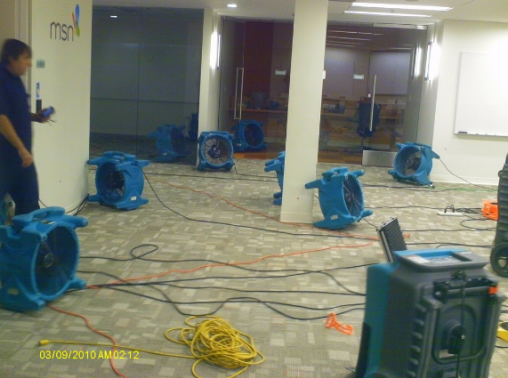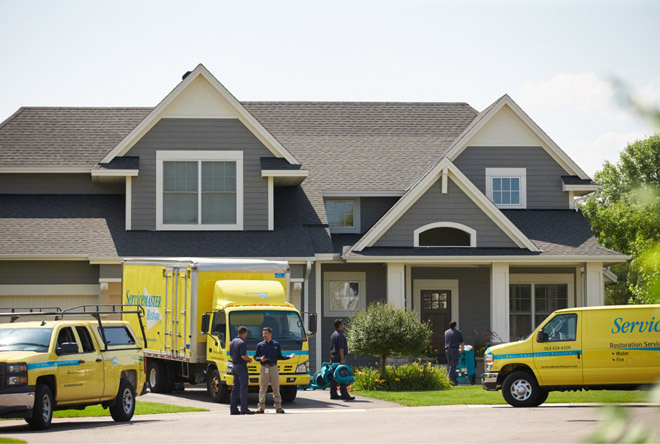 Common Causes of Water Damages in Your Home
Common Causes of Water Damages in Your Home
Boulder, CO Homes Common Causes of Water Damages
Causes of Household Floods
Appliances are a common cause of household floods. Water damage from a leaky appliance has a way, drip-by-drip, of gradually doing its destruction unnoticed. Unfortunately, it’s only when the damage becomes significant that unsuspecting homeowners see the signs. In other situations, an appliance failure can cause sudden household flooding.
During our 18 years of restoring water damaged property for residents in the North Metro and surrounding areas, our team at Service Master of Boulder has seen this unpleasant scenario play over and over again.
To prevent this from happening to you, we recommend taking a few simple precautions with appliances that cause water woes: washing machines, refrigerators and dishwashers.
Washing Machines
Small leaks stemming from a washing machine may appear to be a minor issue, but the problem should not be ignored. Even a pinhole leak in a water supply line can subsequently break out into a household flood. In fact, a burst supply line is a key cause of significant water damage involving washers.
To prevent household floods, water damage and loss check the hoses a couple of times each year. Look for kinks, cracks and wetness especially around the hose connections. When hoses become defective or worn out, you may want to consider replacing them with braided stainless steel hoses, instead of rubber ones. To prevent water supply lines from kinking and weakening keep a four in distance between the washing machine and wall. Also consider installing an automatic shutoff valve. When water pools on the floor, the sensor detects it and closes the water valve.
Refrigerators with Automatic Ice Makers
We appreciate the convenience of an automatic ice maker, but it can also be the culprit of household floods. The copper water line that supplies an ice maker can leak or worse yet, become unattached if it’s not installed properly. Again, you should inspect the line periodically for crimps and make sure the valve connection is secure. But be careful when you pull out the refrigerator to not crimp the copper line. Leaving a four inch gap between the refrigerator and wall also helps to prevent crimping.
Dish Washers Problems
Dishwashers are another common appliance that can cause problems. During the wash and rinse cycles a dishwasher’s discharge or supply line can spring a leak and subsequently erupt, damaging the kitchen with gallons of water.
Another source of household floods is when a dishwasher backs up soaking the floor with sudsy water. The problem could be the wrong detergent, a faulty float, the buildup of food and other debris in the drain gate or a clog in the discharge hose under the sink.
Routine inspection of the hoses and connections can save you major repair costs in the future. In addition, check the drain gate frequently and remove food particles and debris.
Damaged Appliances from Household Floods
You’re probably already familiar with the rule: Water and electricity don’t mix. This applies to the restoration of appliances that have come into contact with a considerable amount of water from a household flood. Extra precautions need to be taken, including a thorough inspection, before putting appliances back in use.
When to Call Service Master of Boulder or Westminster
Both household floods and slow leaks from faulty appliances can cause significant damage. When water leaks behind and under appliances, it can seep through cracks in tile or small gaps in hardwood. The sub-floor made of plywood or particle board absorbs the water causing tiles to become loose. Similarly, hardwoods soak up water that lies underneath resulting in warping, rotting and molding. Drywall behind leaking appliances can also wick moisture and crumble if the affected area isn’t properly restored.
If you are experiencing water damage from a household flood due to an appliance failure, Service Master of Boulder can help restore your property. We service the North Metro area including all of Boulder County, Adams County, Jefferson County, Broomfield and Southwest Weld County.


